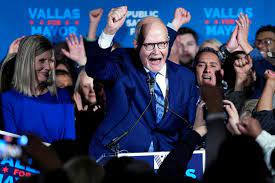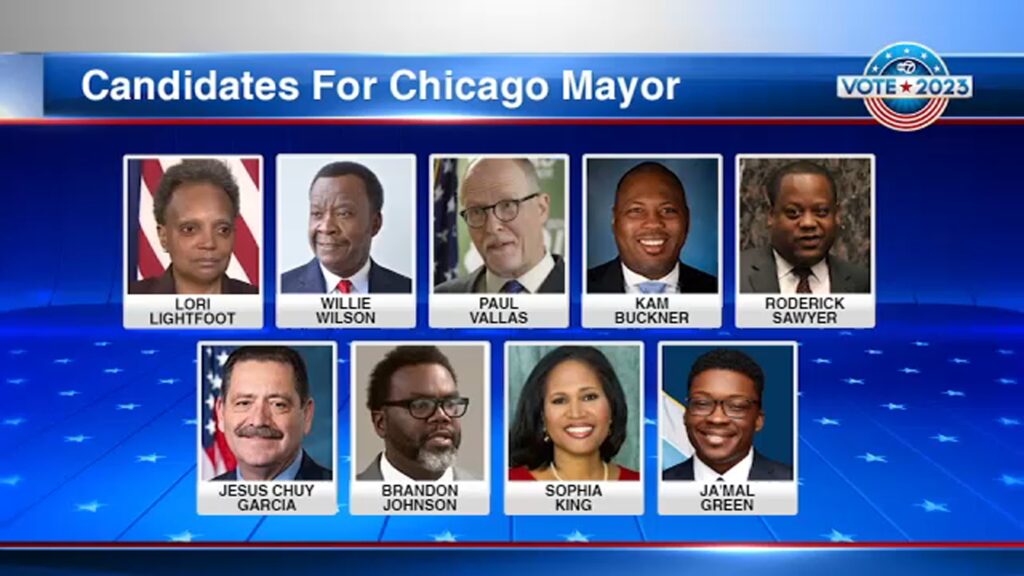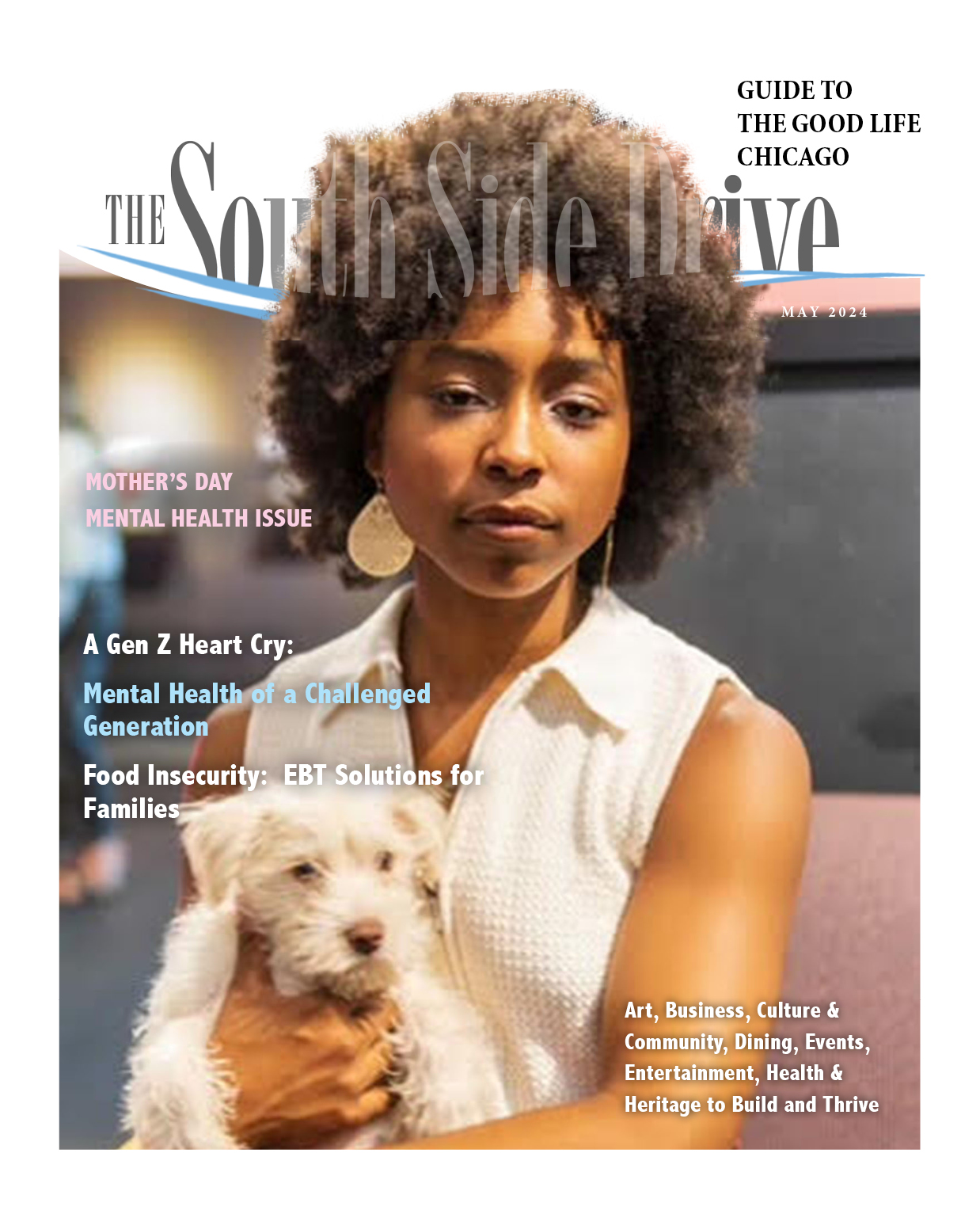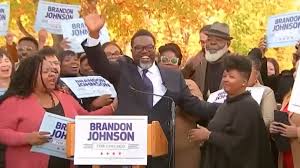How less than 10% of Chicago’s residents could decide the city’s future for decades to come.
If you’re registered to vote in Chicago and planning to cast a ballot in the 2023 Mayoral April 4 runoff elections, you should consider yourself special. If you also voted in the February 28 general election and did NOT vote for one of the two candidates making it into the runoff- former Chicago Public Schools (CPS) CEO and 3-time unsuccessful candidate for executive office in Illinois & Chicago Paul Vallas or former CPS middle school teacher and organizer for the Chicago Teachers Union currently serving as Cook County Commissioner for the 1st District Brandon Johnson– consider yourself even more special.
The reason?
You will select an actual person as your choice to represent the interests of the City of Chicago, its taxpayers, those who work, visit, or do business here, City employees, and most of all, residents of this great city. Because for the overwhelming majority of Chicago’s registered voters the choice for the 2023 Chicago Mayoral election (and all municipal offices) was and is…None of the Above.
Since turning non-partisan in 1999, voter turnout in Chicago municipal elections has never reached anything close to 50%. If turnout reaches anything close to 45% for the April 4 runoff it will be considered spectacular.

If answered “Yes” to both questions posed above, you may be one of the 16-20% of the Chicago registered voters, and less than 10% of the city’s nearly 2.7 million residents, who could decide the fate of the police department, students attending Chicago public schools, and the how the billions of dollars that will flow through City coffers will be raised and spent, for perhaps the next decade or more.
In the end, it all comes down to the turnout. What follows is based on two simple but crucial facts: 1) voters who cast a ballot in the general election for Vallas or Johnson are not likely to change their votes if they vote in the April 4 runoff, and 2) Paul Vallas received 60-65,000 more votes than Brandon Johnson on February 28.
In effect Vallas has as much as a 60-to-65,000 vote head start over Johnson. We can create endless scenarios of how and where Johnson can make up these 65K votes, but they have to come from somewhere in order for him to have any chance of becoming Chicago’s next Mayor.
I think it is important people make up their own minds. What I’m presenting is not what I want to happen, or even what I think will happen, but rather what needs to happen for either candidate to win. For this reason, any numbers or statistics presented here relative to Chicago’s municipal elections come from one publicly-available source: the Chicago Board of Election Commissioners website (go to CBoEC website> Home >Election Results).
Opinion polls are garbage, entertainment, or both. Because many voters want to “go with the winner” or don’t want to waste their votes, opinion polls are now easily and routinely being weaponized by all corners of the political spectrum to manipulate, suppress, and marginalize true expression of the people’s will. Instead of relying on the crystal-ball mystique of opinion polls, it’s easier to just “look at the numbers” to understand what could happen on April 4, and one number most-of-all: the percentage of Chicago’s registered voters who cast a ballot in the February 28 general election.
35.85%. Just under 567K of Chicago’s 1.581+ million registered voters.
Let’s suppose for different reasons we see the same level of turnout (or less) for the April 4 runoff, keeping in-mind our first-2 assumptions about No Vote Switching. Between them Johnson and Vallas received 54.5% of total votes cast. This would leave around 45% of runoff voters- about 257K- “undecided”. Johnson would have to win about 161,000, around 62-63% of these votes, regardless of where in the city they came from.
In the February 28 general election voters on the North and Northwest Sides of Chicago accounted for about 65% of total votes cast. Another to look at it: for every 8 voters from the South and West Sides, there were about 13 voters from the North and Northwest Sides. IF voter turnout patterns for the runoff are the same as the general election, Johnson could win as much as 75-80% of South and West Side votes and still need a clear majority of North/Northwest Side votes (51-53%) to have a chance at victory.
During the debate Johnson talked about looking into the eyes of Black girls and boys “as a public school teacher teaching in Cabrini Green USA, teaching middle school students when they’re feeling a little less hope,” he said. “As Mayor of Chicago, I’m going to look people in the eye and demonstrate how much we love them. I grew up with a pastor- where your heart is, your treasure will be also.” Johnson went on to describe how youth summer employment programs will be extended year-round, and the proven correlation between public safety and increased opportunities for young people.
Vallas said “people say Chicago is the City That Works, but it’s never been the city that works for everybody.” He called the Chicago $28 billion in municipal spending “a monstrosity of a budget”, and that allocating (an unspecified amount of) “money that invests in underserved neighborhoods on the South side and West side, that how you bring people together”.
The truth is both candidates in the 2023 Chicago Mayoral runoff have the benefit and disadvantage of having unseated an unpopular incumbent. Johnson is a sitting elected official, and Vallas has extensive public service, but neither has served as an elected official on the executive level. To a large extent, we just have to take their word whatever they say they can and will do they can and will do.
Vallas tried to assure voters watching the debate the Fraternal Order of Police (police union) endorsement has no strings attached, because he didn’t accept their campaign donation. Of course, no mention of how many donations he’s received from individual CPD officers, or how much credit the FOP takes for the massive vote totals in Wards where officers and their families live. When Vallas volunteered he is consulting with individual CPD officers on Superintendent and top Commander appointments, moderator Ahern asked Vallas to be transparent and reveal whom he was speaking with. Vallas said he’d do once he become Mayor, citing confidentiality. The debate format didn’t allow Ahern to follow up on what other confidential conversations Vallas might be having regarding other important decisions he could make, or the contents of what those discussions could be.
What also struck me was how Vallas volunteered that the FOP endorsement came because “the rank and file wanted them to”. How did Vallas know this? The answer could be as innocuous as a survey taken of CPD’s 9,000-strong rank and file, but barring Vallas conducting his own survey, somebody told him. Either the FOP leadership or some trusted but also-unnamed source. What Vallas says about his relationship with the FOP and yet-unnamed CPD officers he consults with raises more questions than answers.

Johnson frequently mentions his days as a CPS teacher, but his time as an organizer for the Chicago Teachers Union is already being used as a wedge to limit his support among segments of Black and Brown Chicago who- yes, it’s true- are wary CTU and its increasing focus on political organizing. CTU is considered one of the most powerful and well-organized teacher’s union in the country and deemed a threat to mainstream interests on both sides of the political spectrum. Johnson told moderator Ahern the fact he’s received over 90% of his campaign funds from labor unions (some representing public employees) won’t affect his judgement in contract negotiations. Johnson added that as Mayor of all Chicago he’d act as fiduciary and protect the city’s interest, echoing Vallas’ pledge not to raise property taxes.
In addition to the FOP Vallas is endorsed by Illinois Secretary of State Jessie White, general election candidates Willie Wilson, Roderick Sawyer, and Ja’Mal Green, joined by 27th Ward Alderman Walter Burnett, Jr. and others. Johnson is supported by freshman U.S. Representative Johnathan Jackson, Senator Bernie Sanders, Senator Elizabeth Warren, Congressman Jesus “Chuy” Garcia, State Senator Kam Buckner, veteran Rep. Danny Davis, and Illinois Attorney General Kwame Raoul.
Both Mayoral candidates have powerful, well-financed interests supporting them. Vallas has wealthy financers known for supporting conservative candidates like billionaire Citadel CEO Ken Griffin, Johnson the labor unions with long histories of political organizing. It’s hard to imagine any of this support is completely altruistic, seeking Nothing in Return. Whatever happens, I want to make sure the new Mayor is accountable and serves the interests of people, especially here on the South Side, and most especially the Black youth and young adults still at-risk in these uncertain post-COVID times.






